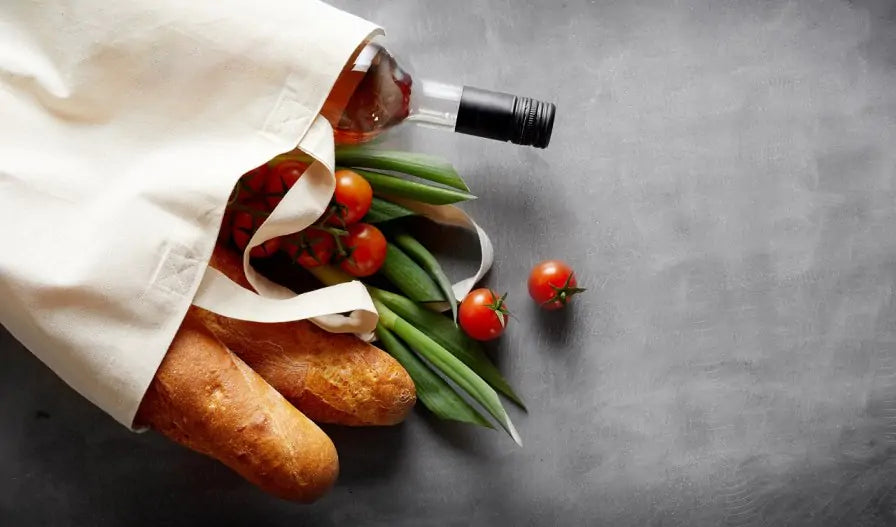OR
Express Checkout

The most recent figures show that a massive 9 billion less plastic bags have been used in the UK since the levy was introduced in October 2015. The campaign to introduce a charge was led by Keep Britain Tidy and their partners, who dubbed themselves the ‘Break the Bag Habit coalition.’ The coalition included the Campaign to Protect Rural England, Surfers Against Sewage and Thames 21.
Plastic: An environmental disaster
Single-use plastic bags are an environmental disaster, as they take an age to degrade and if they find their way into the ocean, they cause untold damage to ecosystems and wildlife. They also blight our streets, parks, and beauty spots.
How can you use less plastic every day?
Don’t buy items that are packaged in plastic
Try to buy food in glass jars and boxes, or go to a store where you can buy produce loose. This will save you money because the amount of packaging on a product can add up to a considerable cost for you as a consumer.
Use shopping bags made from cloth or similar
Plastic bags are terrible for the environment and they cause harm to wildlife. Keep reusable bags in the car or by your front door so you’ll always remember them when you go shopping for groceries.
Carry a refillable water bottle
Plastic bottles make up a lot of the litter that ends up on our beaches and in our oceans. Bottled water is also more expensive than tap water, so you’ll save money buying something that you can refill, plus there are health benefits too. Toxins can leach from plastic into your beverage if you constantly refill the same plastic bottle. Not a nice thought.
Upcycle plastic items
Why not turn plastic bottles into something creative, or use plastic bags, cups, and straws in school craft projects? The less plastic you discard, the less will end up in our oceans and landfill.
Do away with single-use straws
Straws are one of the most commonly littered items. Drinking out of a straw is not a necessity, but almost all of them end up in landfill or on our beaches.
Wear clothing made from natural fibres
Clothing made from manmade fibres like polyester is made of plastic. This plastic can flake off clothes when they are worn and washed, and the tiny plastic particles can end up in our oceans.
Buy compostable tableware
If you have to buy disposable cups, plates, or cutlery, buy items made from paper or biodegradable plastic, both of which can be composted.
Don’t throw away electronics
These contain plastics and precious metals which can be reused. If you can’t get the item repaired, try to recycle it, or sell the parts to someone who upgrades them. If they are in good working condition, sell them or donate them to charity.
Take your own lunch to work
Rather than buying a packaged sandwich and a packet of crisps for lunch, take your own to work in a reusable container. Not only will it save you money, it can be a lot healthier for you and the environment.